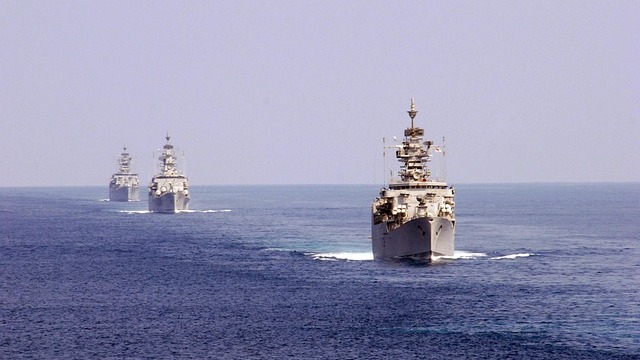
Finding Purpose Amid Chaos: Lessons from the Papal Conclave
The world’s gaze turned to Rome, where an extraordinary event was unfolding—the Papal Conclave, a powerful moment steeped in history and tradition. With the passing of Pope Francis, the College of Cardinals was convening to make a monumental decision: selecting the next leader of the Catholic Church. This process reflects high-stakes decision-making and carries vital lessons, especially relevant for those in military and national security sectors.
The Importance of Mission-Focused Leadership
At the heart of the Conclave process is mission-focused leadership—a concept that resonates across sectors, especially within military environments. For the Cardinals, their ultimate mission is the spiritual welfare of the Church. In contrast, military leaders focus on protecting national interests, upholding democracy, and ensuring the safety of soldiers. Understanding your mission serves as a guiding star amidst the chaos and pressure of decision-making. The capability to remain laser-focused on your core purpose is essential, especially when distractions are abundant.
A Lesson in Clarity During Crisis
Navigating high-stakes environments can often feel overwhelming, much like the whirlwind of news coverage surrounding the Conclave. The Cardinals practice a deliberate approach, utilizing prayer and reflection to facilitate their decision-making process, emphasizing the importance of cutting through the noise. This disciplined approach offers valuable insights for military professionals grappling with conflicting priorities and urgent demands. For instance, when a national security team faced escalating threats, their clear mission enabled them to make swift, effective decisions.
Inspiring Courage Through Complex Times
High-stakes environments demand incredible courage. The decision-making process during the Conclave mirrors the bravery exhibited by military personnel in the face of danger. Understanding the weight of these decisions can help individuals in the military draw parallel lines to their own experiences. Just as the Cardinals must weigh their choices carefully, service members often find themselves in situations where each decision can significantly affect lives, making courage and clarity essential.
Utility of Tradition in Modern Leadership
Tradition, as demonstrated by the Conclave, provides a framework for contemporary leaders. The rituals and deliberations reflect a deeper connection to a mission, one that transcends the individual. Military leadership benefits from this perspective, as teamwork and unity within military ranks can lead to success. Echoing the conclusions drawn by the Cardinals, military leaders should ensure that their teams work harmoniously towards the common goal, cultivating an environment where every voice is valued, especially during crises.
The Power of Reflective Leadership
Amidst the pressures described, the Cardinals withdraw from outside influences, a practice that should resonate with military leaders facing similar pressures. Creating space for reflection fosters the capacity to analyze different perspectives while honing critical decision-making skills. Leaders in both the military and business sectors can apply these principles, ensuring that they stay grounded in their values and objectives, even when the heat is on.
In conclusion, lessons derived from the Papal Conclave embody essential principles of leadership that can guide those in military professions. Understanding and maintaining a clear mission and practicing reflective leadership amidst chaos not only fortify leaders but also benefit the teams they lead.
As you navigate your own career path, consider how these lessons can apply to your unique experiences, especially if you are transitioning from military service to civilian life. Resources like AristaValor offer programs designed to assist veterans in finding meaningful employment and translate their military leadership skills into corporate success. Such transitions can be challenging, but with the right mindset and support, they can lead to fulfilling careers beyond service.
 Add Row
Add Row  Add
Add 




Write A Comment